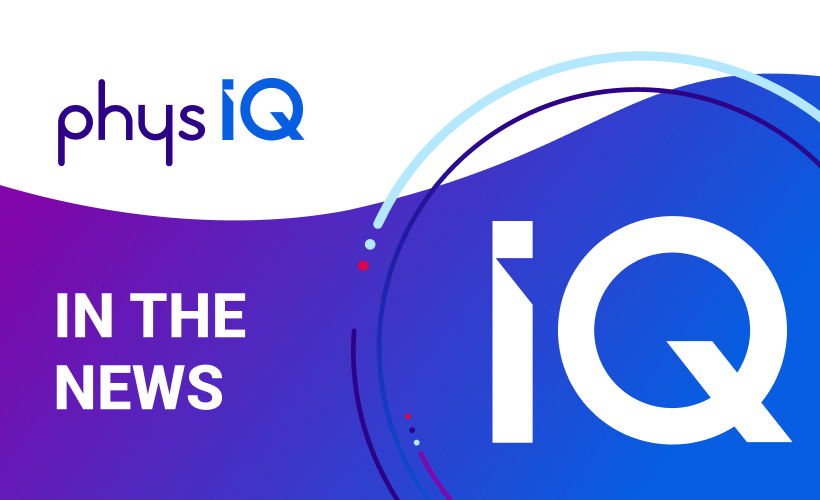Inside an Individual’s Physiological Signature
Originally published in Medical Device & Technology
2 min read
![]() physIQ
:
July 28, 2014
physIQ
:
July 28, 2014

Originally published in HealthTechZone
The traditional model of delivering care to patients by the healthcare industry is responsible for a system that is coming under increasing pressure to reform the way it does virtually everything. The industry as whole is reactive and not proactive, which means it usually implements something after the first couple of iterations have become obsolete. While this might have worked in the past, today's customer centric consumer base is demanding more efficiency from their healthcare professionals. This includes integrating new technologies, such as wearables, to deliver the data they monitor directly to their clinicians so it can be used to proactively detect any anomaly before it becomes serious.
Currently, the most popular devices in the market place are designed to address the fitness market, with some units having additional features to monitor sleep, body temperature, etc. While quality manufacturers have hardware that performs many of the functions well, it is in the software and analytics department where they fall short. physIQ, provider of proprietary personalized predictive analytics technology, is looking to change that by making proactive health monitoring readily available for everyone.
The physIQ predictive analytic technology for proactive health monitoring is going to allow individual consumers and healthcare providers to use the data collected from wearables to change the lives of consumers by improving their quality of life.
The physIQ personalized physiology analytics (PPA) technology learns the different signals produced by many of the different systems in the body to create a dynamic multivariate baseline for each patient. Once this baseline is created, the PPA technology can identify any physiological deviation and report it to the individual or clinician. Unlike other platforms that use population data averages to compare your individual readings and determine if you are normal, physIQ uses only your data to compare you to you.
It is important to note the technology is designed to provide an early warning platform. What this means is it is not a diagnostic tool, but the changes detected by the system can give healthcare professionals early detection which in many cases can't be seen with other approaches.
"A holistic baseline profile makes it possible to pinpoint discreet changes that might otherwise go undetected, yet represent significant clinical departures from the patient’s normal baseline. This provides an invaluable diagnostic tool to help physicians improve patient quality of life and reduce the cost of care," said Dr. Martin Burke, University of Chicago Medical Center.
According to the company, it has been tested in life-critical machine applications such as commercial jets and nuclear power plants where massive amounts of data are aggregated and analyzed. This allows it to integrate multiple devices from a wide range of compatible sensors. The data and device agnostic platform has enough scalability to monitor and convert complex data into usable information monitoring anywhere from a single person to thousands.
The ability to monitor multiple sensors is important because the adoption of this technology is growing across all industries. Whether it is collecting physiological data from ambulatory patients with non-invasive sensors or from the billions of devices that will be part of the Internet of Things (IoT), the avalanche of data that is coming our way has to be properly managed and analyzed in order to gain actionable insights that can be used to improve our way of life.

Originally published in Medical Device & Technology

Originally published in Pixel Scientia Labs

Originally published in Crain's Chicago